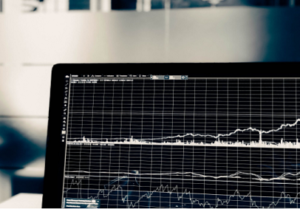
There is nothing to deny that dividends could earn you better profit over investment.
But their nature of performance in finance could be varying. That can even result in adverse outcomes or maybe unprofitability. To consider the profit one can drive through investing in dividends, it is mandatory to figure out cash flow management, and for this, you must know how to find a cash ratio.
This article is about how dividends affect your financial ratios and how they can also affect the company’s cash flow.
Let’s understand the mechanism below:
What is a dividend
A dividend is a payment made by a company to its shareholders when it earns more money than it needs to keep operating. A company’s earnings are often divided among its owners, who are referred to as shareholders. Dividends are typically paid out in proportion or percentage of the shareholder’s holdings.
How dividends affect your financial ratios and company’s cash flow
“Dividends have a direct effect on your financial ratios and can also affect your company’s cash flow. A dividend is a distribution of a portion of the corporation’s earnings that is typically paid to shareholders in proportion to their holdings.”
When dividends are paid out, they affect the company’s liquidity ratios and its return on equity.
A company’s liquidity ratios are often affected by an increase in dividends. The equity component will shrink when the market value falls since this value will be split among more shareholders.
How to stop dividends negative impact on financial ratios
If your company is paying out dividends but has a negative impact on your financial ratios, you can take steps to stop it. The first step would be to keep an eye on the market value. If you notice that the market value is at a low point, it may be time to sell off some of the stock. This will decrease the number of shares for shareholders and increase the price per share. You can also look into renegotiating dividends with shareholders if the stakes are split among more people. This way, they are less likely to affect your cash flow since you’ll only pay out dividends when you have more money than you need to keep operating.
Why retirees may not want to invest in stocks that pay a lot in dividends
Retirees may not want to invest in stocks that pay a lot in dividends because they would have to take the dividend as income. The amount of taxes they would have to pay at retirement will be much higher than if they had invested in stocks with lower dividends due to taking this as income.
For example, if retirees invest $100,000 and receive $10,000 worth of dividends annually for 20 years, their total investment would be $720,000. If they do the same thing but only receive $4,000 worth of dividends annually for 20 years and take them as income along the way, the total investment will be $852,000.
Conclusion
Dividends have a direct effect on your financial ratios and can also affect the company’s cash flow. Many companies are opting against paying out large amounts in dividends due to market volatility. Knowing which stocks are suitable investments may require some research. Be sure you’re considering all factors before deciding whether or not high-dividend stocks are right for you!


















